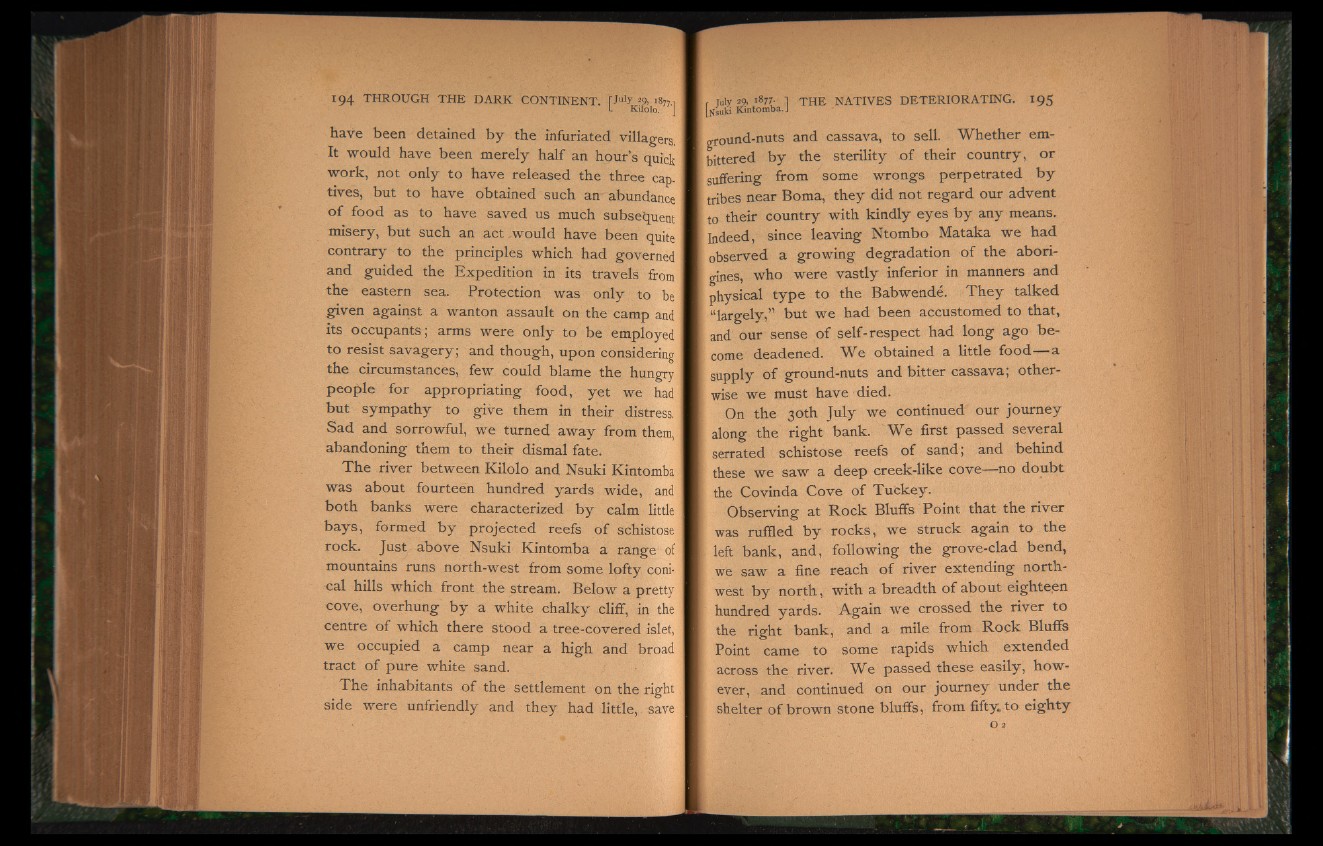
have been detained by the infuriated villagers
It would have been merely half an hour’s quick
work, not only to have released the three cap.
tives, but to have obtained such an abundance
of food as to have saved us much subsequent
misery, but such an act ,would have been quite
contrary to the principles which had governed
and guided the Expedition in its travels from i
the eastern sea. Protection was only to be
given against a wanton assault on the camp and
its occupants; arms were only to be employed
to resist savagery; and though, upon considering
the circumstances, few could blame the hungry
people for appropriating food, yet we had
but sympathy to give them in their distress.
Sad and sorrowful, we turned away from them,
abandoning them to their dismal fate.
The river between Kilolo and Nsuki Kintomba
was about fourteen hundred yards wide, and
both banks were characterized by calm little
bays, formed by projected reefs of schistose
rock. Just above Nsuki. Kintomba a range of
mountains runs north-west from some lofty conical
hills which front the stream. Below a pretty
cove, overhung by a white chalky cliff, in the
centre of which there stood a tree-covered islet,
we occupied a camp near a high and broad
tract of pure white sand.
The inhabitants of the settlement on the right
side were unfriendly and they had little, save
r July 29, 1877- I T H E N A T IV E S D E T E R IO R A T IN G . 1 9 5
Itfsuki Kintomba. J
ground-nuts and cassava, to sell. Whether embittered
by the sterility of their country, or
suffering from some wrongs perpetrated by
tribes near Boma, they did not regard our advent
to their country with kindly eyes by any means.
Indeed, since leaving Ntombo Mataka we had
observed a growing degradation of the aborigines,
who were vastly inferior in manners and
physical type to the Babwende. They talked
“largely,” but we had been accustomed to that,
and our sense of self-respect had long ago become
deadened. We obtained a little food— a
supply of ground-nuts and bitter cassava; otherwise
we must have died.
On the 30th July we continued our journey
along the right bank. We first passed several
serrated schistose reefs of sand; and behind
these we saw a deep creek-like cove— no doubt
the Covinda Cove of Tuckey.
Observing at Rock Bluffs Point that the river
was ruffled by rocks, we struck again to the
left bank, and, following the grove-clad bend,
we saw a fine reach of river extending northwest
by north, with a breadth of about eighteen
hundred yards. Again we crossed the river to
the right bank, and a mile from Rock Bluffs
Point came to some rapids which extended
across the river. We passed these easily, however,
and continued on our journey under the
shelter of brown stone bluffs, from fifty, to eighty